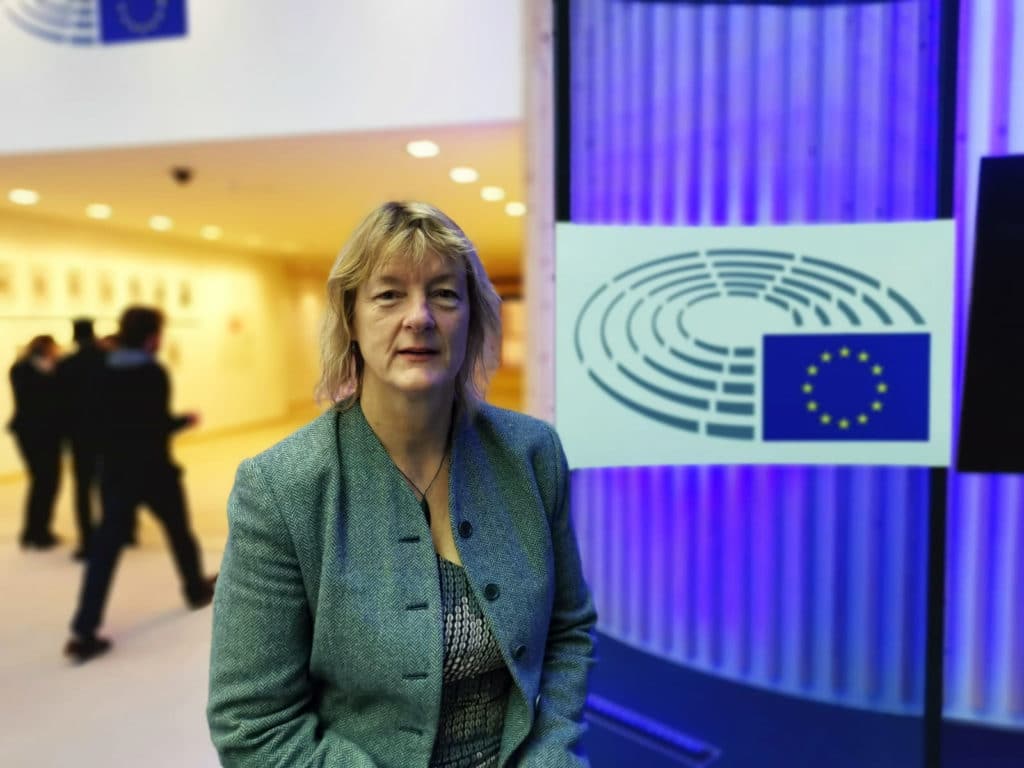
GROUNDED
An occasional column by Grace O’Sullivan – mother, ecologist, environment and peace activist, MEP.
These are distressing and unsettling times and we are witnessing a new world evolving in tragic circumstances.
As we continue in our national efforts at containing the spread of Covid-19, people are being asked to make personal sacrifices as we undertake a major curtailment of movement with the goal of saving lives.
It’s hard not to be consumed with worry, overwhelmed by the bewildering situation we find ourselves in. But I hope there is some comfort in knowing that all these restrictions are being undertaken and enforced in the name of safety. The safety of people has to be our top priority, as we face an immediate and very real emergency for humanity.
The isolation measures in place at home and internationally, will have positive results in terms of flattening the curve on the spread of Covid-19. But we must continue with these measures and be prepared for more tough times ahead.
I’ve been in self-isolation for the past couple of weeks, along with two of my three daughters who travelled back from Brussels with me. Self-isolation has been challenging, but we’ve gotten through the couple of weeks and we’ll get through the next couple of weeks of borderline lockdown, and we’ll get through more of them besides if it means we are a part of the national efforts to flatten the curve.
In these times it often feel like events are out of control, but with these latest moves, we will see results and know that we have done our bit.
By adhering to the national restrictions we make a collective decision not only to keep our closest family and housemates safe, but to play a part in protecting our frontline heroes. First and foremost, the healthcare workers, who are leaving their families to risk their own lives in trying to save the lives of our most vulnerable.
When we make the decision to put limits on our own movements outside the home in other areas also, we are lessening the chance that we could be involved in either catching or spreading the virus.
Shopkeepers and those providing other essential services deserve our respect and our adherence to the restrictions. Don’t go into a shop unless you are buying something that you absolutely can’t do without. Ask yourself the question: can I make do without this for another couple of weeks? Your answer to that question, and your subsequent decisions about your own movements could mean that the national management plan in this crisis can be effective.
This virus is running rampant. It’s taking lives along the way. If we can slow the speed of its spread it means that hospitals and the magnificent staff who operate them may have some hope of being able to cope with a stream of cases coming through their doors, rather than a tsunami of victims, all arriving together.
We all need to act as if we are carriers of this lethal virus. At the moment we are allowed to get out in the air for walks within 2km of our homes. Please do that in a responsible way.
Taking these decisions may save lives, but they may also flatten the curve on Covid-19, so that we can all get back to some semblance of normality as quickly as possible.
I look forward, in hope, to us getting back on our feet. For now though, as a Member of the European Parliament, I’ll be joining both my European colleagues and Irish Green Councillors and TDs, in working together with other member states and channels nationally and locally, supporting those frontline people who are working tirelessly to flatten the curve on the spread of Covid-19, and maintaining the necessary levels of safe passage and organisation needed around areas such as the transport of food and medical supplies and the protection of business and the economy.
At a European level I’ve submitted a written statement to Parliament and I’ve written to the Commission calling for support for those particularly vulnerable people living in group situations at home and internationally.
Compassion and people’s health must be at the heart of decision-making around Covid-19 measures. For example, my team has spoken to one man living in direct provision in Waterford, who sounded particularly unwell and was essentially afraid to come out of his room in case he had the virus and risked spreading it to the other 150 residents at his centre. He described living conditions that are unsustainable in the current crisis where, for example, he was being forced to share a shower with eight others and eat with large groups of people.
My colleagues in Dáil Eireann are dealing with this and other issues at a national level. At council level, I’ve also written to the local authority in Waterford to see what can be done to address that particular situation.
I encourage representatives of all parties locally and nationally to do what they can for those most vulnerable in their areas. Now is a time for united, cross-party collaboration as we move through this crisis and try to get the people of Ireland back on their feet as quickly as possible.



